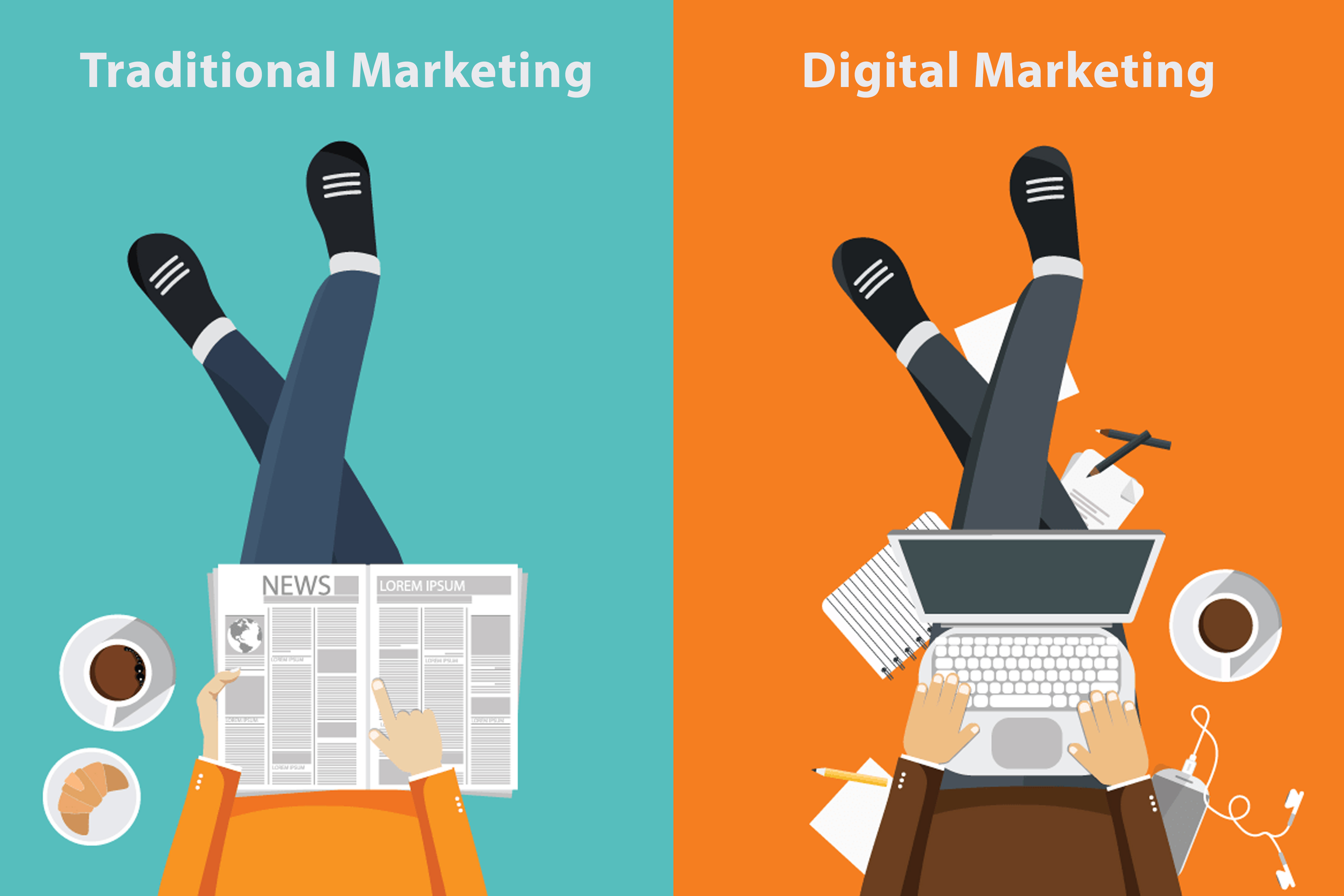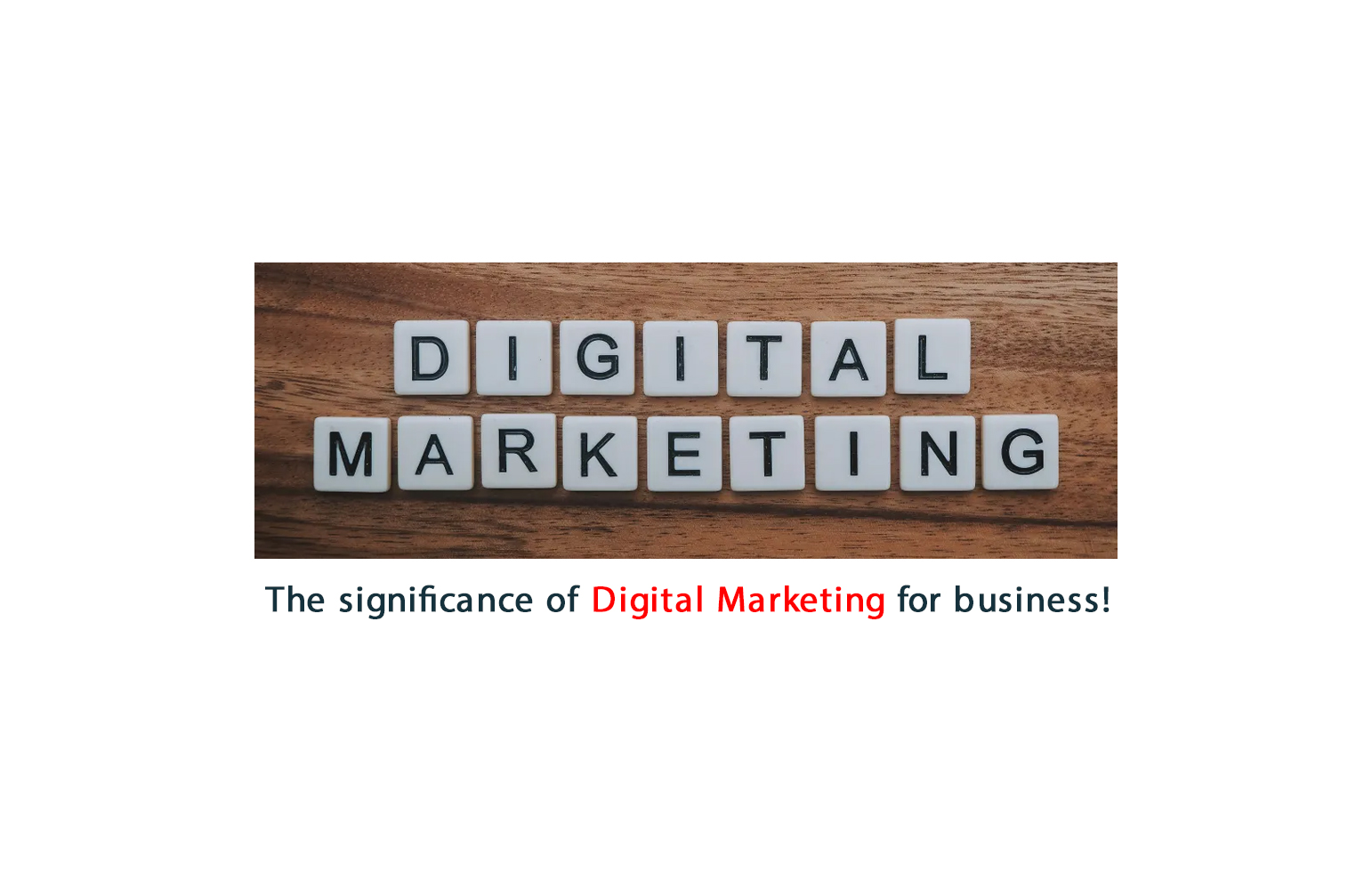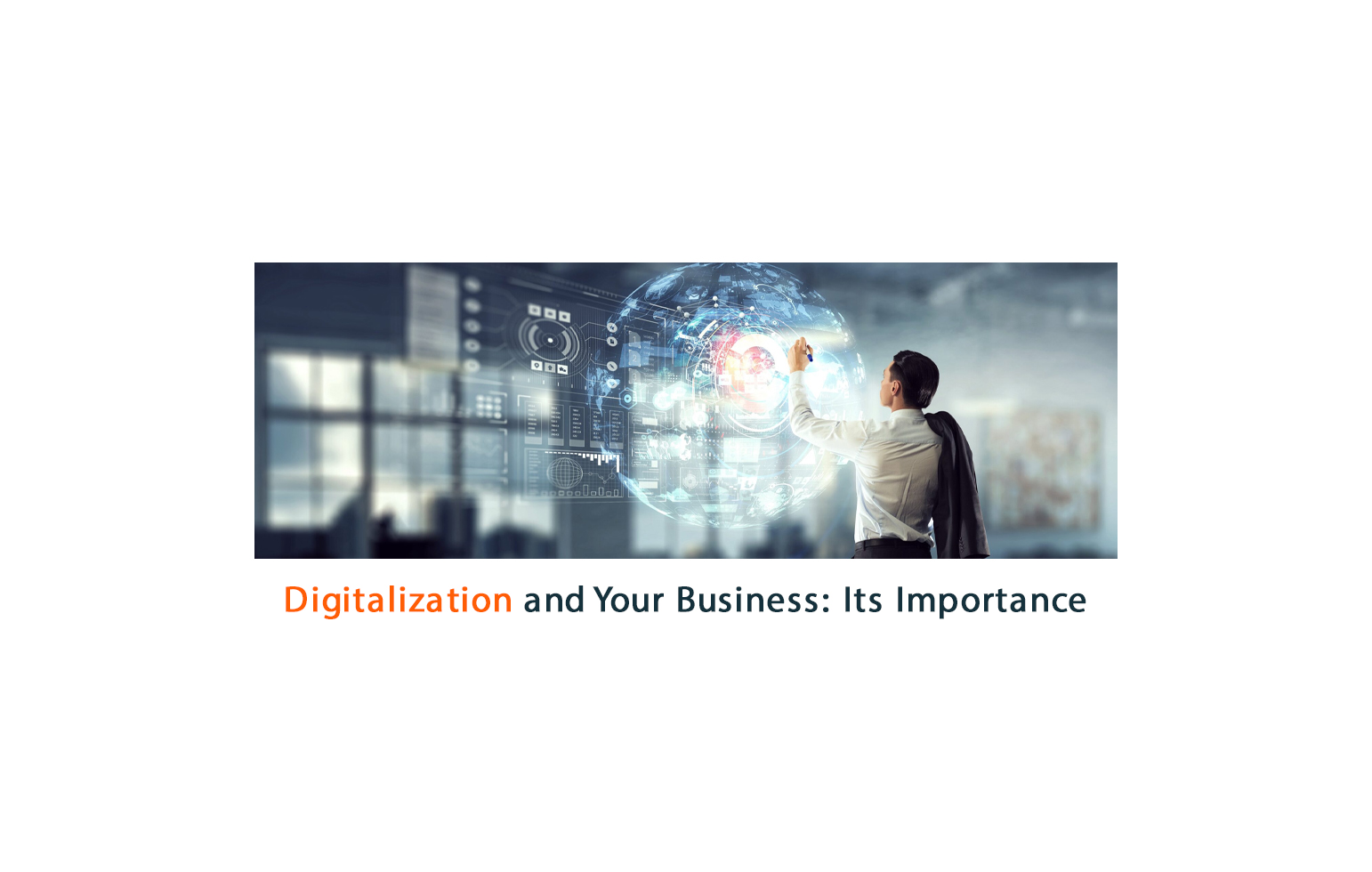Oct 12
The significance of digital marketing for business!
The use of digital platforms for advertising has become standard practise in today's competitive marketplace. The capabilities provided by the ever-evolving information technology sector have helped to speed up, improve, and lower the cost of digital marketing tactics. This has led to it being linked to better strategy, enhanced allocation of resources, higher levels of client satisfaction, more targeted and effective promotions, and more active participation from customers.
Difference between Traditional and Digital Marketing
The ramifications of the various modes of information transmission stand out as one of the most notable distinctions in Digital Marketing. Paper flyers, posters, and promotional goods are all examples of the kind of physical media that are essential to the success of many more conventional forms of advertising. As these items are often sent through couriers, their availability is restricted to a certain region. While this category also includes more conventional forms of media like radio and television, such outlets often serve a smaller geographic area and don't provide global coverage very often. However, since the Internet is digital marketing's principal channel, it avoids these constraints. This allows for scalable distribution. The elimination of many middlemen and reduced processing time make this variation attractive beyond its obvious impact on scale.
Another main differentiator is that digital marketing is interactive on both ends. Traditional marketing often only provides for a minimal amount of user input, which results in increased friction and reduced efficiency. Digital marketing, in contrast, frequently gives customers a chance to engage in the procedure by influencing the delivery, providing feedback, and ranking the quality of the service. A kind of feedback that is sometimes embraced is the recounting of stories. This method not only makes the interaction with the company easier, but it also motivates the consumer to actively participate. Customers recognise they are more than just an audience and start to see themselves as contributors to the process. It also opens up possibilities for gathering information.

Different kinds of Digital Marketing
Search Engine Optimization:
Search engine optimization (SEO) is a strategy for increasing a website's exposure in the unpaid search results shown by major search engines. More people will visit a company's website if it appears higher in search engine rankings. There is a greater potential for a frequent browser to become a paying client. SEO tactics allow businesses to raise the visibility of their online properties and boost their positions in search engine results pages.
Search Engine Marketing:
Another kind of advertising online is search engine marketing, through which a company may target its ads at a specific audience. This premium real estate on the user's SERP is exclusively reserved for the advertised company. A few examples of sponsored search platforms include Bing Ads, Google AdWords, and others.
Social Media Marketing:
The marketing of a business's products and services is greatly aided by the use of social media. It's a kind of promotion that may help a company reach more people and get to know them better. Insights and feedback gained from social media interactions with consumers help businesses improve their products, services, and support. Social media marketing helps businesses attract a sizable following on social media by sharing informative and engaging posts. Not only does this boost traffic, but it also boosts a company's internet profile.
Content Marketing:
The goal of content marketing is to increase traffic, leads, and, ultimately, revenue by providing valuable information to visitors. Tweets, blogs, videos uploaded to YouTube, etc., all remain online as part of the content marketing strategy. As a complementary strategy to other digital marketing tactics, Content Marketing complements strategies like Social Media Marketing and Search Engine Optimization.

The use of digital media for advertising has grown in significance in today's commercial landscape. While it hasn't completely replaced conventional methods of advertising just yet, it's fair to say that it's just as crucial to reaching today's consumers, and its importance may even grow in the near future. However, the effectiveness of its implementation depends on several elements, including adaptability, distribution mechanisms, and a two-way nature that permits user input and interaction.







